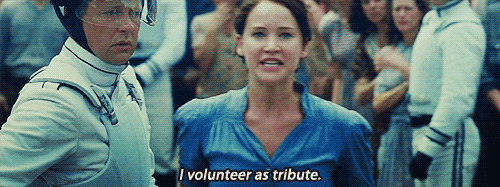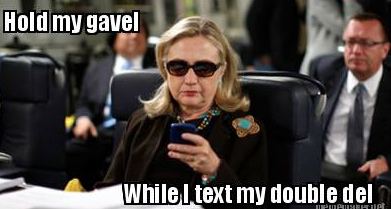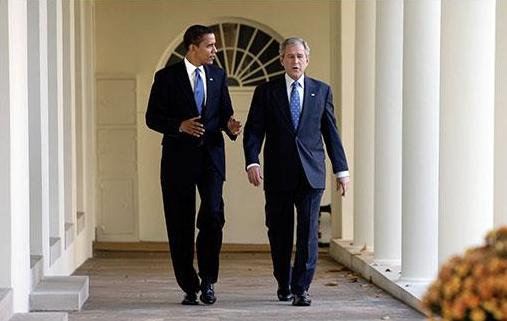This year at the Washington Area Model United Nations Conference (WAMUNC), hosted by the George Washington University, we are excited to host 22 diverse committees, from traditional General Assemblies (GAs) to innovative crisis committees. All of our GA committees are double delegation, and we even have double delegation specialized committees, like our Joint Democratic National Committee/Republican National Committee 2016.
Grab your double delegation partner and give this a read for tips and advice on how to perform well as a double delegation. No matter if your partner is your best friend or someone new, these will surely help you doMUNate committee.
Traditional General Assemblies
- Designate Roles
Part of the blessing of having a partner is dividing up the work. It’s important that each delegate plays a different role in the committee to split the work and to play to his or her strengths. Usually double delegation partners decide to designate one person as the inside delegate and another as the outside delegate. You can choose to stick to these roles the whole weekend or trade roles.
The inside delegate is actually inside the committee room. This delegate makes speeches, takes notes on other delegates’ speeches, passes notes, and manages the block inside of the room. Managing the block inside usually involves communicating the content of one’s working paper or draft resolution to other members of the bloc, playing bloc defense, and communicating with the Chair. This person should be the more outgoing of the two delegates and be better at public speaking.
The outside delegate is, again, outside the committee room. This delegate deals more directly with the content and writing of the resolution, negotiates with power delegates within the bloc, and may take the lead if mergers occur. This person should be organized, unafraid of merging and power delegates, and know resolution-writing inside-out (no pun intended).
- Be flexible
Just as double delegation partners must designate roles, both delegates must also be ready to change at a moment’s notice. Most winning delegations are well prepared but they also adapt to changing circumstances.
If your partner needs help inside or outside, be ready to come to their aid. For example, the inside delegate may think a speech would be more effective with two speakers. In this case, the outside delegate should come inside to help with the speech. Another example: the outside delegate may need help editing clauses or managing the writing process during an unmoderated caucus. The inside delegate can help pick up some slack here.
- Communicate
To function as a double delegation, communication is key. Many conferences do not allow electronic devices in the committee room, and their cell service may be spotty, so cell phones may not be an option for this. If you cannot communicate instantly, I recommend the following: every half hour (at least), the inside delegate should run a note outside to the outside delegate with any important information that was disseminated inside the room. This includes important procedure changes made by the chair, any issues within your bloc, or any highlights on content based on delegate speeches. The outside delegate should trade notes with the inside delegate when the inside delegate comes outside or verbally communicate any developments with the working paper or draft resolution.
Specialized Double Delegation Committees
At WAMUNC, we have two non-GA double delegation committees, the Joint Democratic National Committee (DNC) and Republican National Committee (RNC) 2016. As a conference and university located in the heart of Washington, D.C., we love having these unique and DC-oriented committees. Here are a few tips to navigate DC politics this specialized double delegation committee.
- Location, Location, Location
In the DNC-RNC JCC, each double delegation is a different state. In traditional committees, you know bloc positions of the 193 member state of the United Nations for most major issues, but in the DNC-RNC, this is also important. Research where your state and other states lie on all of the platform sub-issues. If you’re having trouble with research, location can aid you in finding each state’s position because some regions of the United States have similar policies. Additionally, when deciding candidates for major offices, see if your state or other states have regional or personal ties to any of the candidates.
- Reach across the Aisle
Delegates should stay in their committee rooms, but they should also be creating a platform and choosing a candidate based on the other committee. At WAMUNC, f the RNC picks a platform farther right than normal, the DNC may want to consider choosing a more moderate platform. As another example, if DNC delegates choose Senator Elizabeth Warren as their candidate, the RNC should weigh whether Governor Jeb Bush or Governor Susana Martinez would be a more appropriate opponent.
- Get into character!
In the DNC-RNC committees, delegates are representing a different kind of state than normal. Just as each country in the United Nations is unique, each state is unique. Feel free to get both funny and punny! You and your partner should get together to brainstorm ideas about your state for speeches. Read the background guide extensively, follow the news closely, and research interesting facts about your state. Whoever is functioning as inside delegate needs to make sure they get into character. They should also focus on more emotional political arguments. Keep in mind that you don’t have to be as diplomatic in this committee because you’ll be dealing with partisan politics rather than diplomatic relations.

Tina Fey and Amy Poehler get into character representing Governor Sarah Palin and Senator Hillary Clinton.
We hope you keep these tips in mind while attending WAMUNC this weekend or any conference in the future! Remember to trust your partner and, most importantly, have fun!







